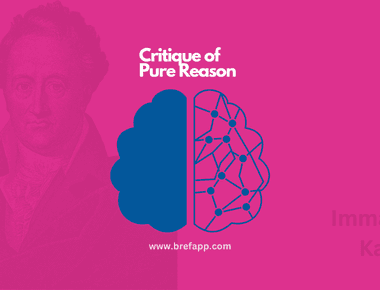
Beyond Good and Evil: A Summary of Friedrich Nietzsche's Book

Friedrich Nietzsche was a German philosopher who lived from 1844 to 1900. He is widely regarded as one of the most influential thinkers of the modern era, and his ideas continue to have a significant impact on philosophy, literature, and culture. Nietzsche was a critic of traditional morality and sought to develop a new perspective on ethics that would allow individuals to live more fulfilling lives.
“Beyond Good and Evil” is one of Nietzsche’s most famous works, published in 1886. It is a philosophical treatise that challenges conventional ideas about morality, truth, and knowledge. The book is divided into 296 sections, each containing a brief, aphoristic statement on a particular topic. The style is highly poetic and aphoristic, and Nietzsche makes use of metaphor and symbolism to convey his ideas.
The significance of “Beyond Good and Evil” lies in its critique of traditional morality and its emphasis on the importance of individualism and personal responsibility. Nietzsche’s ideas have been highly influential in the development of modern philosophy, psychology, and literature, and continue to be the subject of debate and discussion today.
Nietzsche’s critique of traditional morality
Nietzsche’s critique of traditional morality is a central theme of “Beyond Good and Evil.” He argues that traditional moral values are based on a system of rules and beliefs that are imposed on individuals by society. Nietzsche rejected this system of morality, which he believed was designed to suppress individual creativity and the will to power.
Nietzsche introduces the concept of “slave morality” as a response to traditional morality. He argues that slave morality is characterized by a focus on weakness, suffering, and sympathy. According to Nietzsche, slave morality is a result of a historical power struggle between the ruling class and the oppressed. The oppressed, in this case, created their own moral values as a way of coping with their suffering and subjugation.
In contrast, Nietzsche presents the concept of “master morality,” which is characterized by strength, power, and a focus on personal achievement. Master morality is not concerned with the suffering of others, but rather with individual excellence and the pursuit of personal goals.
Nietzsche’s rejection of traditional morality and his embrace of master morality have been controversial and have generated much debate. Some have criticized Nietzsche’s ideas as promoting selfishness and egotism, while others see them as a necessary response to the limitations of traditional morality. Regardless of one’s opinion on the matter, Nietzsche’s critique of conventional morality remains an important contribution to philosophical thought.
The will to power
The concept of the will to power is a central theme in Nietzsche’s philosophy, and it is closely related to his critique of traditional morality. Nietzsche describes the will to power as the fundamental drive behind all human action, the desire to overcome obstacles and achieve one’s goals. He believed that the will to power is the driving force behind both individual and social behavior.
Nietzsche saw traditional morality as a way of suppressing the will to power. He argued that moral values, such as humility and self-denial, were used to control and subjugate individuals. Nietzsche believed that this suppression of the will to power was detrimental to human flourishing and that individuals should embrace their natural desire to achieve greatness.
Examples of the will to power can be seen in everyday life, from the pursuit of personal goals to the competition for resources and social status. The will to power can be expressed in both positive and negative ways, such as in the drive to create art or the desire for domination over others.
Nietzsche’s emphasis on the will to power has been influential in the development of psychology and social theory. Some have criticized his ideas as promoting aggression and domination, while others see them as a necessary response to the limitations of traditional morality. Regardless of one’s perspective, the concept of the will to power remains a provocative and thought-provoking idea in contemporary philosophy.
Perspectivism
Perspectivism is a philosophical concept that emphasizes the subjective nature of knowledge and truth. Nietzsche’s perspectivism posits that there is no objective or absolute truth, but rather that all knowledge and truth are relative to one’s perspective or point of view.
Nietzsche applies perspectivism to truth and knowledge by arguing that our understanding of the world is shaped by our individual experiences and perspectives. He believed that there are no fixed or objective standards by which we can judge the truth of a claim, but rather that truth is a matter of interpretation and perspective.
Nietzsche’s perspectivism differs from other philosophical theories of truth, such as correspondence theory and coherence theory. Correspondence theory posits that truth is a matter of the agreement between a proposition and the state of the world, while coherence theory posits that truth is a matter of the coherence of a set of beliefs.
In contrast, Nietzsche’s perspectivism emphasizes the importance of individual perspective and experience in shaping our understanding of the world. According to Nietzsche, there are many different perspectives, each with their own particular insights and limitations, and no single perspective can claim to have a monopoly on truth.
Nietzsche’s perspectivism has been influential in the development of postmodern philosophy, which emphasizes the importance of multiple perspectives and the subjective nature of knowledge and truth. However, some critics have criticized perspectivism as promoting relativism and skepticism, arguing that it undermines the possibility of objective truth and knowledge.
The eternal recurrence
The concept of the eternal recurrence is a central theme in Nietzsche’s philosophy, and it refers to the idea that all events in the universe recur infinitely. Nietzsche presents the eternal recurrence as a thought experiment in which the individual is forced to confront the idea of living their life over and over again, in exactly the same way.
The significance of the eternal recurrence in Nietzsche’s philosophy lies in its emphasis on the individual’s responsibility for their own life. According to Nietzsche, the acceptance of the eternal recurrence requires individuals to take full responsibility for their actions and decisions, as they will be repeated infinitely. This idea challenges traditional moral values, which emphasize the importance of repentance and redemption, and instead encourages individuals to live their lives to the fullest, without regrets or hesitation.
The eternal recurrence has been subject to a range of interpretations and criticisms. Some have argued that the concept promotes a fatalistic or deterministic view of the universe, while others see it as a way of affirming life in the face of its inherent meaninglessness. Some have also criticized Nietzsche’s use of the eternal recurrence as a thought experiment, arguing that it is impossible to know whether the concept is true or not.
Despite these criticisms, the eternal recurrence remains a provocative and thought-provoking idea in Nietzsche’s philosophy, challenging individuals to confront their own mortality and the importance of living a life of authenticity and personal responsibility.
FinalToughts
Friedrich Nietzsche’s book “Beyond Good and Evil” presents a comprehensive critique of traditional morality, emphasizing the importance of the individual’s will to power, perspectivism, and the eternal recurrence. These ideas challenge conventional moral values and encourage individuals to embrace their natural desire for greatness and take responsibility for their own lives.
The enduring relevance of Nietzsche’s ideas can be seen in their influence on contemporary philosophy, psychology, and social theory. His critiques of traditional morality and emphasis on individualism continue to be debated and explored in contemporary discussions of ethics and politics.
For those interested in exploring Nietzsche’s ideas further, there are numerous works that provide a deeper dive into his philosophy. Some suggested readings include “Thus Spoke Zarathustra,” “The Genealogy of Morals,” and “On the Genealogy of Morality and Other Writings.”
-—
Tags
Related Posts




Quick Links
Categories


